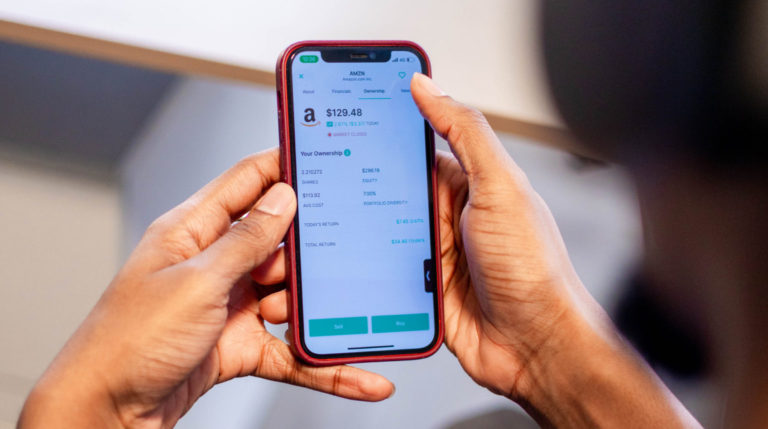During the “funding winter,” 10 African startups closed, and some are still fighting

Though there were initially expectations that the nascency of the African tech ecosystem may mean it spared too much damage, the expanding extent of the continent’s “startup graveyard” implies that is not the case. Venture capital financing has fallen dramatically globally in 2023.
According to PitchBook data, venture capital funding nearly halved globally in the first half of 2023, indicating a lack of investor enthusiasm and declining demand amid rising interest rates. Crunchbase reports that it was 15% lower in Q3 compared to the same quarter last year.
Figures from Disrupt Africa depict a worrying image of Africa. We recently revealed that, in the third quarter of this year, African tech companies raised just under $500 million, bringing the total for the first nine months of the year to just under US$1.5 billion. This is a 48% decrease from the same period in 2022. In the absence of a sharp recovery, it appears that financing in 2023 will be roughly half that of the previous year. Yes, a reset.
A particular kind of African startup has been severely impacted by the market’s lack of liquidity as well as the unexpected challenges that companies who were accustomed to consistently raising money are suddenly having in luring investors.
Well-funded businesses that pursue “growth at all costs” tactics are forced to make drastic changes to their business models or go down. The “startup graveyard” in Africa, which was mostly devoid of “star names” until this year, is growing more quickly than most would like.
These 10 well-known startups have closed their doors in 2023.
Sendy
In August, Kenyan end-to-end fulfillment startup Sendy shut down operations and announced a fire sale of assets (it didn’t call it that), with reports saying reduced order volumes and fuel price hikes meant it was making deliveries at a loss, and had a monthly burn rate of US$1 million. Sendy raised US$20 million in capital as recently as January 2020, but in the current climate further funding was not to be found.
54gene
54gene, a genomics research company that had raised US$45 million across three funding rounds, revealed in September that it had started winding down its operations. 54gene, which has had three CEOs in the last 12 months, said it “could not continue to operate financially”. See the trend?
Dash
Ghanaian payments startup Dash, founded in 2019, had raised a whopping US$86 million, but folded in October amid allegations of financial impropriety and false reporting.
WhereIsMyTransport
South African mobility startup WhereIsMyTransport, bankrolled to the tune of over US$27 million by investors such as Naspers in recent years, announced it was closing down in October after failing to secure more investment.
Lazerpay
In April, Lazerpay, a Nigerian crypto and web3 company, confirmed it was shutting down operations after failing to raise additional funding. The startup had laid off some employees last year after the proposed lead investor for its seed round withdrew due to the “market conditions and disagreement on terms”.
Zumi
Kenyan B2B e-commerce startup Zumi announced in March it had closed down after failing to secure the necessary funding to continue operations. Launched in 2016, Zumi began life as a female-focused digital magazine, before pivoting into e-commerce in 2020. According to co-founder and CEO William McCarren, the startup achieved over US$20 million in sales, acquired 5,000 customers, and built a team of 150 people, but closed after failing to secure investment. “The current macro environment has made fundraising extremely difficult, and unfortunately, our business was not able to achieve sustainability in time to survive,” he said.
Zazuu
Last month, Zazuu, a London-based marketplace for African remittance companies that and raised more than US$2 million in total funding, also shut down, also citing a lack of funding. “We explored every option before making this decision,” the company said in a LinkedIn post.
Hytch
In February, Nigerian logistics startup Hytch confirmed it had shut down barely nine months after launch. “It has been a tough one but we are shutting down operations finally,” the company said in a social media post. “We would no longer be providing our services to businesses or individuals.” Once again, the closure came about after it failed to secure further funding.
Okada Books
Nigeria’s Okada Books, founded in 2013 and a pioneer in digital publishing and bookselling, closed down last month, citing rough macroeconomic conditions. “We explored various avenues to keep our virtual bookshelves alive but, unfortunately, the challenges we face are insurmountable,” said Okechukwu Ofili, the company’s CEO, in a social media statement.
Pivo
Formed by Ijeoma Akwiwu and Nkiru Amadi-Emina in July 2021 and launched in public beta in September, Pivo offered banking services to small supply chain businesses, and raised a US$2 million seed round a little over a year ago. It, too, has now closed its doors, though by all accounts founder conflict also played a part.
And battling on…
Plenty of previously high-growth ventures plod on, but they are all having to change the way they operate.
Copia
Kenyan e-commerce company Copia, which raised US$50 million Series C funding last year, announced it was pulling out of Uganda, “consistent with many of the best companies in Africa and across the world which are responding to the market environment and prioritising profit.”
MarketForce
Another Kenyan retail-tech startup, MarketForce, is also facing challenges. The company raised US$40 million in funding in February of last year, back in the boom times, but stunningly, certain VCs that had committed funds backed out. In all, US$8 million of that capital was never wired. MarketForce has struggled to raise more capital, announced a bunch of layoffs, and recently turned to crowdfunding to get some cash in the bank.
Twiga Foods
Twiga Foods, a platform that connects Kenyan farmers to food vendors, recently secured undisclosed funding as part of a business refinancing process, just weeks after facing a KES40 million (USD 262,000) debt collection lawsuit. Twiga secured the new funding from Creadev, Juven, TLcom Capital Partners, and DOB Equity, investors that participated in the US$50 million Series C round it raised in 2021.
Paystack
Nigerian payments company Paystack, acquired by Stripe in 2020, has been steadily growing its geographical presence since then, but is now taking a step back. The company announced last month it had reduced its operations outside of Africa, cutting its workforce in Europe and Dubai. “We’re changing our operating model to prioritise locating team members within the markets we serve, to localise costs and get closer to customers,” CEO Shola Akinlade said.






